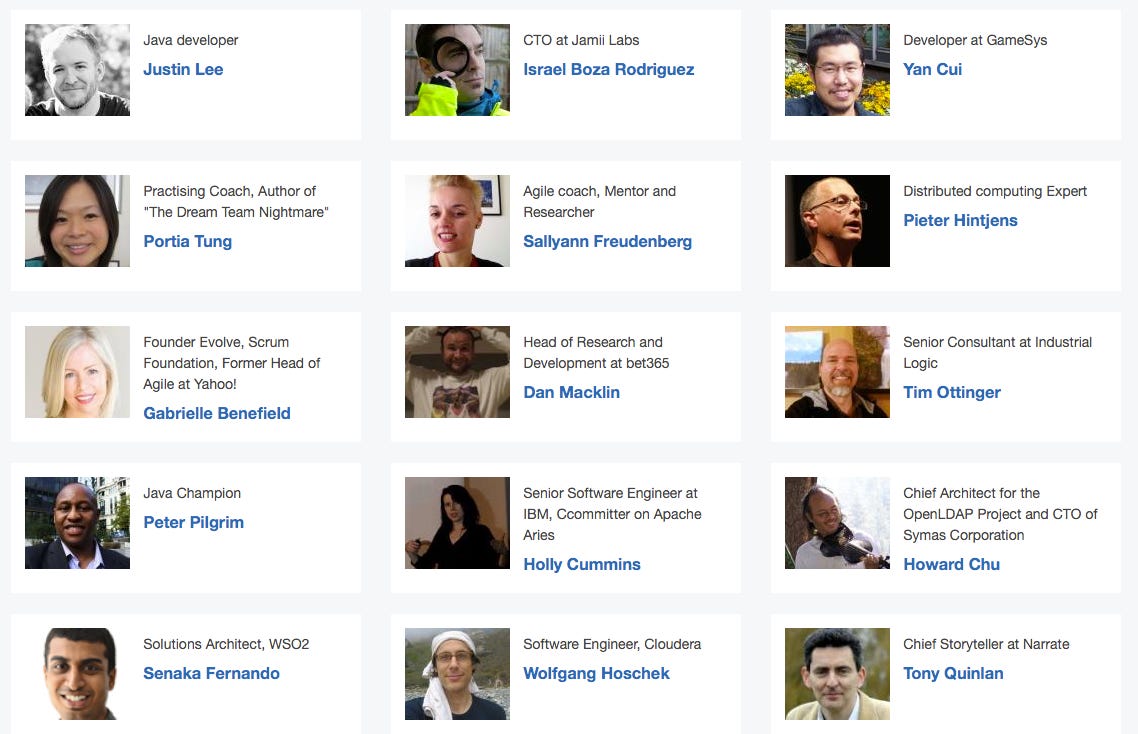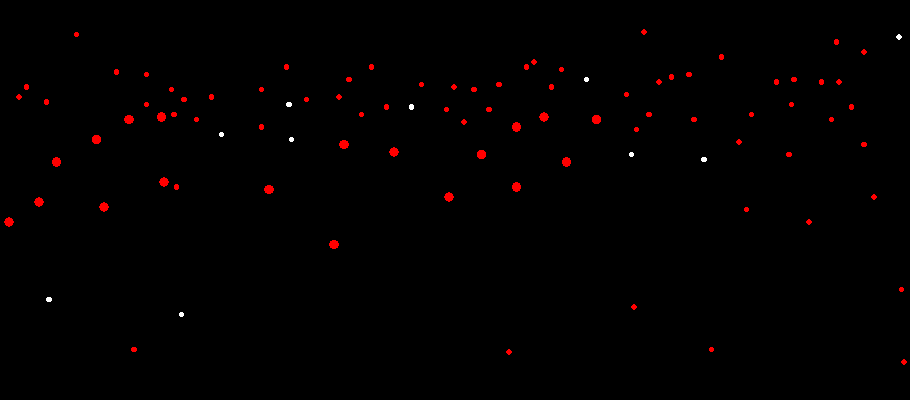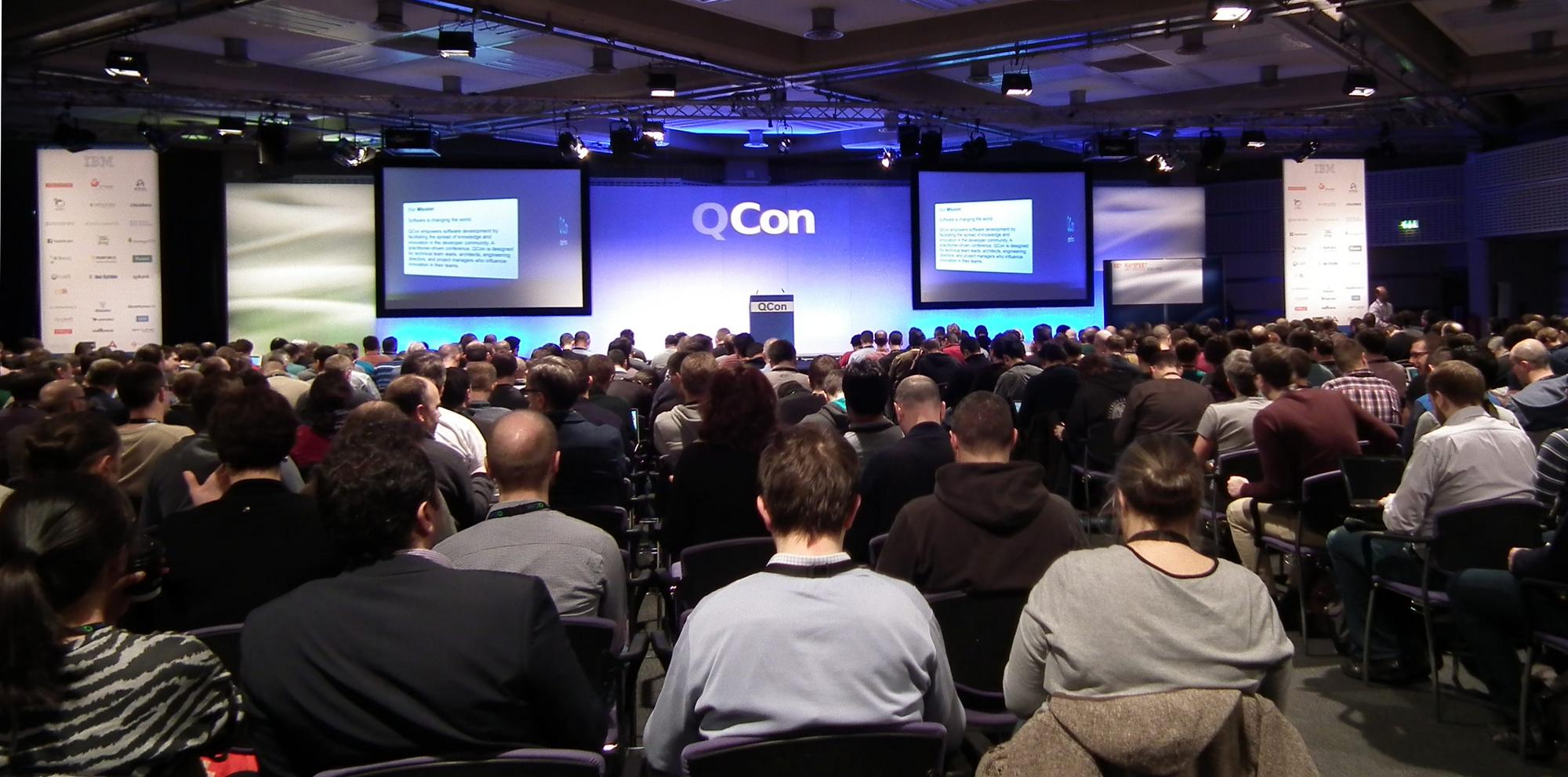Last week I attended QCon London, a “Conference for Professional Software Developers” run by InfoQ. Three days of keynotes, presentations, facilitated discussion, and general open mingling with other delegates and and speakers.
It's the first time I've been to this conference. I went because last year my colleague Stephen went, and I could tell from his experience there, and from the online videos of the talks published later, that this was worth going to. So I signed up for this year at the earliest opportunity.
It's well known that the technology sector has a diversity problem. Go to almost any technology event in Europe / North America, and you'll see overwhelmingly white male faces.
Today is International Women's Day 2015: so what have I learnt of the diversity aspect of QCon, and about the inclusion of women in particular?
Do I expect I'll go again next year?
The speakers
For those used to technical conferences, you might be interested in taking a quick look at the diversity on show amongst the speakers at QCon London this week.

When I checked and did a rough count, there were 123 speakers listed, and quite a range of faces.
Or, so it might appear at first glance.
I very roughly counted males and females, white and non-white. By my count, this year's QCon speaker line-up included:
- 3 (2.4%) non-white women;
- 5 (4.1%) non-white men;
- 24 (19.5%) white women;
- 91 (74.0%) white men.
Only 74% white men? For the technology sector, that's actually pretty good! So, that's like, 26% of “doing diversity”!
Make no mistake: it's a lot better than most conferences, by which I mean that it's closer to being more representative of the population as a whole.
But that's still 78% male, and the world simply isn't like that. (In case it needs saying: it is, of course, 50% female, 50% male, give or take). And this lineup, while being more diverse than we've come to expect, is still 93.5% white, compared to 87% in the UK population as a whole.
Which doesn't sound so bad, but does mean that if you're attending QCon, and you're non-white, and hoping to see non-white speakers, then instead of the 16-ish speakers you should expect to see, you in fact see only 8; only half of what it should be.
78% male. 93.5% white.
In this sector, however, 22% female counts as so far above the norm that it won't have happened by accident, which implies that the organisers took deliberate steps to include more women, which implies that they care about diversity — which is great. But at the same time we all need to recognise that it's still not enough, and we should demand more.
The audience
The organisers don't collect the diversity profile of the audience, so that information is harder to assess quantitatively.
I tried two different (but similar) ways of measuring the audience diversity, and I admit, both methods are highly unscientific. Firstly, as I sat waiting for the keynote, I just looked around at the people sat nearest to me. Secondly, I took a photo of a larger area of the audience, and counted faces later.

Doing a quick sample of the 50 people sat around me while we waited for Friday's keynote, it looks like about 16% female, 84% male. Which again, is a long way away from 50/50, and it's notably even more skewed than the speaker line-up.
As for white / non-white: again, based on the people sat around me: roughly 88% white, 12% non-white. So actually, on this highly unscientific sample, this one's pretty much on-target, matching the figures for the UK population as a whole.
The count of faces in the photo came to 82 white male, 5 non-white male, 2 white female, 3 non-white female. That is, 95% male, 91% white.
On inclusion
I noticed before the conference started that QCon publishes a code of conduct, and it's nice and clear, concise, and good to see. And with one exception, I neither witnessed nor heard of any harassment or anything else that would violate the code of conduct.
We'll come to the exception later.
People with special mobility requirements were pretty well catered for (but it was hard to work out how to get to the 6th floor). Several people noted how the speakers would be using “she” or “her” more, to refer to actors in their stories (such as: “Your CTO says <x> and she knows what she's talking about…”), instead of just thoughtlessly going with male as the default. Speakers' slides would include little stick figures to represent people — and those stick figures were often women.
All in all, a huge step (compared to tech industry norms) in the right direction. Sadly, the free tee-shirts being given away by the sponsors were obviously not made for women.
And, then… the exception.
On-stage transphobia and its effects
Just before the keynote on the last day, one of the track hosts, John T Davies, made transphobic remarks whilst on stage. It only took a few seconds, but in that moment, much of the good work that QCon had done was very quickly undone: I no longer felt completely welcome, or safe, or included. I felt threatened. At risk.
During the next presentation, I saw the official twitter account post an apology.
In the mid-morning break, I went to speak to the organisers on a different matter, but ended up talking to them about the on-stage comment. I spoke to Silke D'Alessandro, and we were joined by Floyd and Roxanne, founders of InfoQ, and Nitin Bharti; and it was very reassuring to see their obvious concern over the incident, and to see their commitment to diversity and inclusion. They said that they'd spoken to Mr Davies about the incident, and that ahead of his own talk this afternoon, he'd make an on-stage apology.
This conversation was great to have, but at the same time, it's not why I came to QCon: I was here for the conference. So I felt frustrated that, because of what was said on stage, I felt unable to participate in this part of the conference, because of this unwanted distraction.
I joined the next session late (having missed the first half); had lunch, ate alone, my head still full of these distractions. I went for a walk outside, just to forget this, to be an anonymous tourist for half an hour.
Back at the conference for the afternoon, and the next two talks went well. For the third afternoon slot, I popped along to see Mr Davies give his on-stage apology (before I would then quickly switch rooms to go to the talk I actually wanted to hear). Unfortunately, for whatever reason, his apology came across as diminishing and insincere.
I went to talk to the organisers again, to point out that the apology was not good enough. In fact, the apology itself was harmful. And all credit to them: once again, Floyd, Roxanne and Silke said all the right things, completely understood the problem, and said that they'd be taking further action.
I thanked them, and left. But by this point I was furious. I went to hide, to vent, to calm down. As a result of just a few seconds of offensive content on stage this morning, I was missing a significant proportion of the conference.
I managed to catch to the last talk of the day, and then, there was just one more item on the schedule: “Meet the speakers”, where the conference hosts and speakers are encouraged to mingle with the other delegates, and chat, share ideas, be creative. And it occurs to me: one of those other speakers is Mr Davies. Am I ready for that?
I seriously consider just going home. After all, there are no more talks. I could just slip away: many other people are doing so. I could too.
But I shouldn't have to. I came for the conference. This is why I'm here.
Meeting the speakers — and more
So I went. I grabbed a beer. I mingled.
Unlike the other “networking opportunities” — the coffee breaks, lunch, and so forth — where the mingling seems quite random, here it seemed far from random.
A lovely lady named Vanessa came up to me, to talk about this morning's incident. We compared notes about this conference, and past conferences, and how women are treated in the industry.
Then Roy Rapoport (of Netflix; this morning's keynote speaker) found me, and again, we're talking about the transphobia, comparing notes. About how he heard the comments, just before he was due to go on stage, so has to choose: make reference to it on stage, or act as if nothing happened? (He chose the latter, and I don't blame him). About he felt offended by the remarks too.
Then Floyd Marinescu (InfoQ) again, this time asking if I'm prepared to meet with Mr Davies. I know it could well be constructive to do so; and I know it's also fine if I say no. Even as I weigh up the decision, right there and then, I can feel the emotion, the anger, the frustration, the fear welling up in me: I'm still far too emotional about it, and so I decline.
Then I do some proper mingling: back to what the conference is meant to be about. At last.
As things are thinning out, I met with someone — who I shan't name — involved with organising the conference, who offered an opinion on Mr Davies' prospects of being invited back again. Enough said.
Then, finally, just as I'm leaving, another lady (whose name I didn't get) comes up to me, and again, it's to ask about the incident this morning. So we chat, I do my best to explain what happened, and about some of the following chain of events.
And then, the conference is over. Finally, it's time to go home.
Fallout
InfoQ's commitment to diversity at QCon is clear, and is to be congratulated. I wish that more conferences and events were like this.
But, transphobia was on stage. On show.
Make no mistake: incidents like this are exactly why diversity struggles in STEM fields. It drives people away.
What frustrates me so much about this is the uneven effect that such incidents have: I'm assuming that of the 1400 or so people attending, approximately 1399 of them didn't then spend a significant proportion of the day not focusing on the conference because of this.
Straight White Male is the lowest difficulty setting there is.
The closer you are to being a cis straight white male — the more the existing biases of the technology sector pander to you — then the less likely you are to find something that offends you, the more likely you can just get on with your job.
So the transphobia, on the whole, won't have upset non-trans people, and they'd have been able to get on with their day as normal. In fact, they might not have even noticed that there was a problem.
In contrast, as a direct result of the incident on stage, I missed a huge chunk of two talks, was greatly distracted from the others, missed several of the breaks and other opportunities to network, and even the “meet the speakers” mostly consisted of people wanting to talk to me about the transphobia — not about technology, which is nominally what we're all there for.
What next?
The diversity at QCon, compared to the industry as a whole, was good, so it's clear that InfoQ are trying. At the same time, I believe they can try harder: 78% male is still too high, and they are in a position to change that.
I'll admit, I was disappointed to see so few people speak up about the transphobia. If you see it, call it out. Speak up. Take action. Even if the offence isn't directly at you, it affects you, because it negatively affects diversity, and we all know that diversity — that is, having the make-up of the people in the industry reflect the make-up of the population as a whole — is a good thing.
Will I go back to QCon in future? Probably. The conference was well-run, with good content, and InfoQ's commitment to diversity is clear to see, not only from the speaker line-up, but also from their reaction to the unfortunate event of Friday morning.
But in future, can we get women's tee-shirts too? That'd be just great :-)
Update, Monday 9th March: On Friday, Floyd sent me Mr Davies' written apology, asking for my thoughts. I'm sad to say that this written apology was deeply troubling in its tone — "completely unacceptable" is I think also accurate.
March 8th is International Women's Day, celebrating the achievements of all women and calling for greater equality. Together we can make it happen.
Source for the speaker list: the QCon web site
